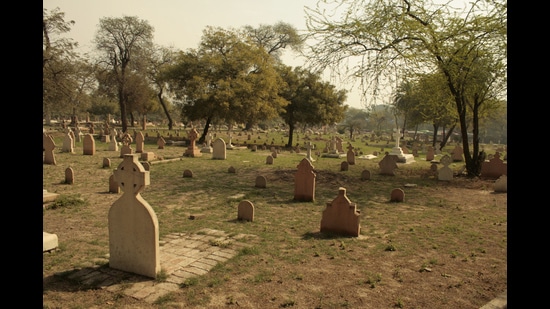Aug 09, 2024 09:07 PM IST
Why are articulate and talented planners and architects not consulted about “built heritage” in cities?
An article in these pages, ‘Trim the monuments list’ (August 6), takes one back to an issue highlighted in the report titled ‘Monuments of National Importance: An Urgent Need for Rationalisation’, published in January 2023. The report was from the PM’s Economic Advisory Committee, of which one of the authors of the article mentioned here is a member (incidentally, there is no archaeologist or historian in the committee, so the hope is at least some were consulted).

Half of the article is anecdotes surrounding the notorious General John Nicholson, an East India Company officer who captured Delhi in September 1857, died near Mori Gate, buried there and commemorated with a statue. Why flog this dead rider? To draw attention to the anomalies in the listing of protected sites. Once designated as “protected”, it is impossible to remove their names from the list, even if (as with statues) they have migrated overseas (Edward VII’s to Canada, Nicholson’s to Ireland, and so on)
The authors were glad to report progress. In July 2024, Nicholson’s absent statue was, at long last, delisted. In March 2024, the Archaeological Survey of India daringly delisted 18 monuments “that have not been found despite years of effort”. They believe “the removal of several missing monuments can be expected soon” (perhaps meaning ‘the removal of the names of several missing monuments…’).
This is actually a relatively minor issue. The more significant one has to do with “monuments that are unworthy of being deemed of national importance”. The article does not specify these, but the 2023 report did. Monuments which are small and/or anonymous must prepare for the worst. Kos minars are small, and there are ‘too many’ of them (37, too many for India to hold!). So, they are on the hit list. The authors have forgotten the magic of Sher Shah’s Grand Trunk Road, the descriptions in Kim. Have you noticed how visitors to Lodi Garden stop at the entrance to look at the kos minar there? These mystifying creations are being put up as street furniture. Can’t a kos minar be integrated into cityscapes? Another structure the committee sternly disapproves of is Chhoti Gumti on the bund-road to Delhi’s Hauz Khas. All the people I spoke to found it attractive, tidied up and softly illuminated from the time of the Commonwealth Games of 2010 — a break on a long, straight road. Its fault: We don’t know the name of the person buried there! So, now graveyards are also targets (all these unknown people). Anticipating this, the British and Indian governments had, in 1977, set up the British Association for Cemeteries in South Asia. Would it not be good manners to bring them into the discussion? And to work out ways to preserve them as quiet green spaces, as is done in Britain. Why are articulate and talented planners and architects not consulted about “built heritage” in cities? More and more Indians are travelling to many parts of the world. Surely they can be inspired to support or sponsor attractive public spaces where the present coexists in harmony with the past? “Rationalisation” is a fashionable term now, whether for school textbooks or for architectural heritage. It is worth trying to figure out the real intent.
Narayani Gupta is a historian of Delhi.The views expressed are personal
Story Saved


